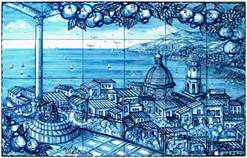Speaker
Dr
Emiliano Basso
(Department of Biology - Roma Tre University)
Description
Resveratrol (3,5,4'-trihydroxy-trans-stilbene RESV) is a phytoalexin produced by plants as a defensive response against fungal attacks. During last decades a huge amount of experimental data demonstrated that RESV exerts various beneficial effects on human health. Controversial data are present in literature about the ability of RESV to affect DNA molecule integrity both in cancer and normal cells. However, poor literature data are dealing with the protective effect exerted by RESV treatment towards DNA damage induced by exogenous and endogenous exposure of normal cells both in vivo and in vitro.
We focused our attention on a putative radioprotective activity of RESV. Since controlled exposure to ionising radiation (IR) is one of the most effective treatments of cancer patients an important area of research concerns the identification of radiation modifiers/protectors that when present prior to or shortly after the irradiation exposure could reduce/minimize the normal tissue damage. In this regard RESV might be considered an interesting candidate. We investigated the ability of RESV to modulate the chromosome damage induced by IR using the Cytokinesis-Block Micronucleus (CBMN) assay and the Chromosomal Aberration (CA) test on human peripheral lymphocytes. In order to simulate the in vivo condition, blood samples obtained from healthy donors were treated with RESV and subsequently exposed to IR before mitogenic stimulation (G0 phase).
While RESV by itself does not induce any DNA damage, we surprisingly found a controversial effect in combined treatment (RESV+IR): a reduction of IR-induced MN and an increase of IR-induced CA (in particular charged to dicentric chromosomes). These results suggested a deeper analysis of the influence of RESV both on DNA repair efficiency and on cell viability. The modulation by RESV of DNA repair has been analysed through Comet assay and γ-H2AX foci induction. The influence of RESV on cell viability has been assessed through apoptosis and cell growth analysis.
Author
Dr
Emiliano Basso
(Department of Biology - Roma Tre University)
Co-authors
Dr
Antonella Testa
(Unit of Radiation Biology and Human Health, ENEA Casaccia, Rome, Italy)
Prof.
Renata Cozzi
(Department of Biology - Roma Tre University)
Dr
Stefano Leone
(Department of Biology - Roma Tre University)
Ms
Valentina Palma
(Unit of Radiation Biology and Human Health, ENEA Casaccia, Rome, Italy)

